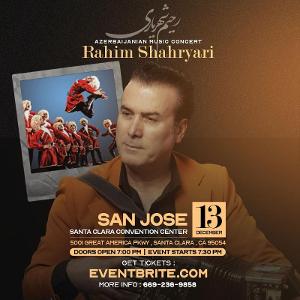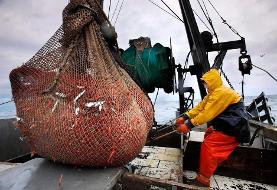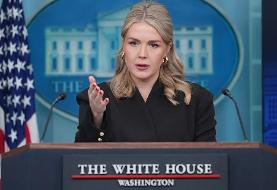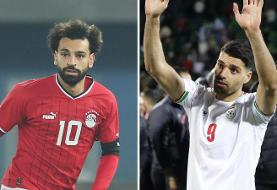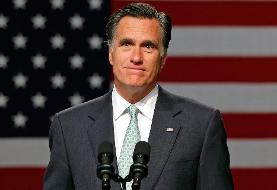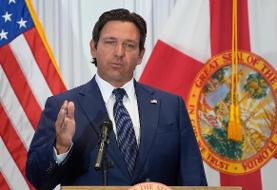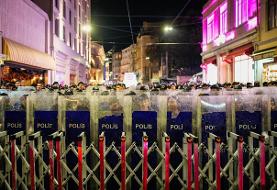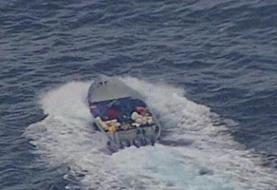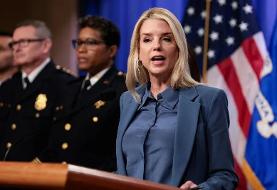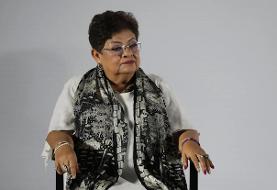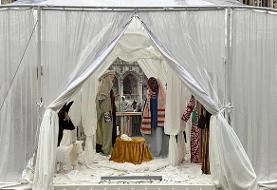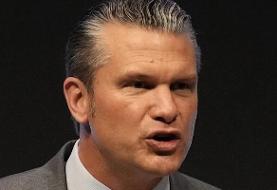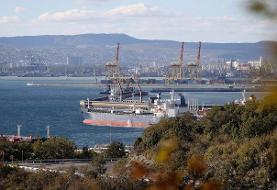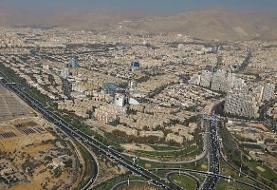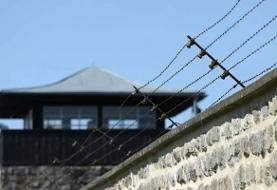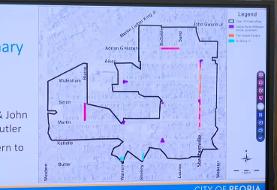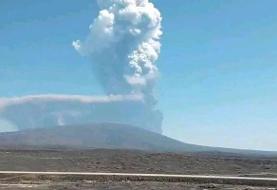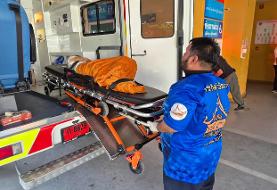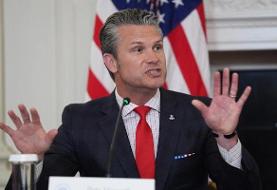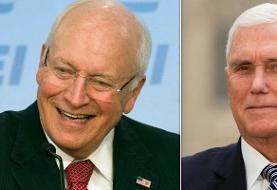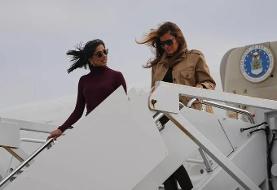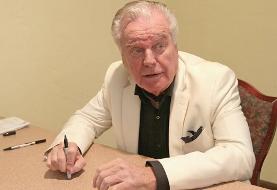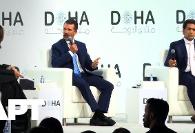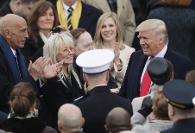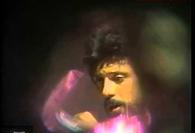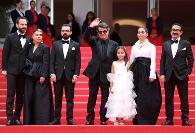Mohammad Reza Shajarian
News and Articles
 Boys and Girls of Tehran Music Conservatory Perform ...
Boys and Girls of Tehran Music Conservatory Perform ...
 Sina Sarlak Starts Concert Tour, Admired by Ebi and ...
Sina Sarlak Starts Concert Tour, Admired by Ebi and ...
 Googoosh and Shajarian meet
Googoosh and Shajarian meet
 Facebook's new Executive Amin Zoufonoun adores/performs ...
Facebook's new Executive Amin Zoufonoun adores/performs ...
 Mohammad Reza Shajarian in Dubai: Reformist songs and ...
Mohammad Reza Shajarian in Dubai: Reformist songs and ...
Mohammad Reza Shajarian (born September 23, 1940 in Mashhad, Iran) is an internationally and critically acclaimed Persian traditional singer, composer and ostad (master) of Persian music., Shajarian is also known for his skills in Persian calligraphy, and humanitarian activities.

Shajarian has collaborated with Parviz Meshkatian, Mohammad Reza Lotfi, Hossein Alizadeh, and Faramarz Payvar. He is recognised as skilled singer in the challenging traditional Dastgah style. In 1999 UNESCO in France presented him with the Picasso Award.
Early work
Shajarian studied singing at the early age of five under the supervision of his father, and at the age of twelve, he began studying the traditional classical repertoire known as the Radif. Shajarian started his singing career in 1959 at Radio Khorasan, rising to prominence in the 1960s with his distinct style of singing. Since then his career has included teaching at Tehran University's Department of Fine Arts, working at National Radio and Television, researching Iranian music, and making numerous recordings.
Music Groups
Shajarian has not always been in music groups, but he currently does the vocals for the Masters of Persian Music with his son Homayoun Shajarian, as well as two other ostads, Keyhan Kalhor and Hossein Alizadeh.
Significant Works
- Raast-Panjgaah concert with Mohammad Reza Lotfi in Raast-panjgaah (1976).
- Be yaad e Aaref with Mohammad Reza Lotfi in Bayaat e Turk (1986).
- Sepideh Album with Mohammad Reza Lotfi and the Sheydaa Ensemble in Maahoor.
- Bidaad with Parviz Meshkatian and the Aref Ensemble in Homaayoun (1985).
- Aastaan e Jaanaan with Parviz Meshkatian and Naaser Farhangfar in Sur (1982).
- Nava - Morakkab Khani with Parviz Meshkatian and the Aref Ensemble in Navaa, Se-gaah and Dashti (1986).
- Dastan with Parviz Meshkatian and the Aref Ensemble in Chahaar-Gah (1987).
- Cheshmeye Noush with Mohammad Reza Lotfi in Raast-panjgaah.
- Shab, Sokoot, Kavir with Keyhan Kalhor based on the folk music of Khorasan (2000).
- Without you with the Masters Ensemble in Navaa and Bayaat e Kord (2002).
- Faryaad with the Masters Ensemble in Raast-panjgaah (2003).
- Eshgh Daanad with Mohammad Reza Lotfi in Aboo Ataa (1981).
- Chehre be Chehre with Mohammad Reza Lotfi in Navaa (1977).
- Serr-e-Eshgh with Parviz Meshkatian and Mohammad Mousavi in Maahoor.
- Doud-e-Oud with Parviz Meshkatian and the Tehran Symphonic Orchestra in Navaa (1987).
- Zemestaan Ast with Hossein Alizadeh and Keyhan Kalhor in Maahoor and Homaayoun (1999).
- Dar Khiaal with Majid Derakhshani in Segaah (1995).
Masters
Shajarian studied with the ostads Esmaeil Mehrtash and Ahmad Ebadi, and learned the vocal styles of singers from previous generations, including Reza Gholi Mirza Zelli,Fariborz Manouchehri, Ghamar Molouk Vaziri, Eghbal Azar , and Taj Isfahani. He started playing the santour under the instruction of Jalal Akhbari in order to better understand and perform the traditional repertoire, and in 1960, he became the pupil of Faramarz Payvar. He studied under the guidance of master Abdollah Davami, from whom he learned many early Persian songs. Abdollah Davami also passed on to Shajarian his own interpretation of the Radif.
Bam Art Garden Project
After the 2003 Bam earthquake, Shajarian initiated a project to help the people of Bam. He also performed concerts in support of people of Bam.
Siding with Iranian Protests
After Iranian notorious presidential election on 12 June 2009, the legendary singer sided with the Iranian people. When Iranian unpopular president, Mahmoud Ahmadinejad referred to the protests as "dust and trash", Shajarian participated in a telephone interview with BBC Persian channel and referred to himself and his voice as the voice of dust and trash: "It is the voice of dust and trash and it will always ramain the voice of dust and trash." He also asked IRIB (Islamic Republic of Iran Broadcasting) to stop broadcasting his songs. He metioned that his famous song "Iran, Ey Saraye Omid" (Iran, the land of Hope), has no relation with the current situation of his country.








